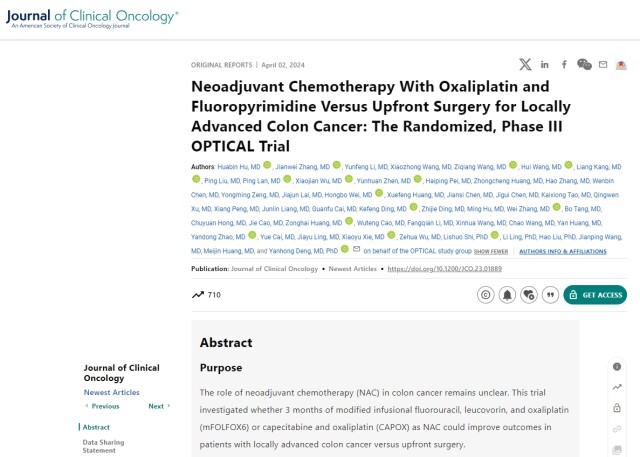A study conducted by professors and physician from the Sixth Affiliated Hospital of Sun Yat-sen University, as well as other researchers, revealed that neoadjuvant chemotherapy (NAC) with oxaliplatin and fluoropyrimidine was safe, resulted in substantial pathologic downstaging, and appears to be a viable therapeutic option for locally advanced colon cancer. The results were recently published online in the Journal of Clinical Oncology (JCO).

Over the past two decades, the incidence of colorectal cancer has been steadily rising, ranking second among malignant tumors in China and posing a significant threat to public health. Despite postoperative adjuvant chemotherapy based on fluorouracil, 20-30% of patients with stage III and high-risk stage II colon cancer still experience recurrence and metastasis. Improving the prognosis of patients with locally advanced colorectal cancer remains a critical and challenging issue in both clinical practice and academia.
The study, led by the Sixth Affiliated Hospital of Sun Yat-sen University and involving collaboration with 28 high-level hospitals nationwide, represents the world's second and China's first randomized controlled phase III clinical trial exploring NAC for locally advanced colorectal cancer in the Chinese population.
Andrew Ko, Professor of Clinical Medicine and Associate Division Chief of Oncology, Division of Hematology/Oncology at the University of California, San Francisco, and Associate Editor of JCO, commented that while NAC does not yet represent the preferred standard of care for locally advanced colon cancer, this study adds to the growing body of literature demonstrating not only the safety but also some potential benefits of this approach when compared to upfront surgery.
Author | Hannah
Editor | Nan, Will, James
















